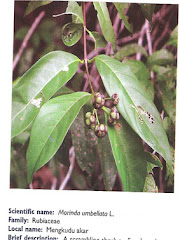Due to their ecological value, protected areas, especially those found in the tropics and in less-developed countries, contain many of the world’s greatest ecotourism attractions. These attractions may consist of one or a combination of rare or Endemic Species of flora and fauna, abundant wildlife, high indices of Species Diversity, unusual or spectacular geomorphological formations, or unique historic or contemporary cultural manifestations in a natural context (The Nature Conservancy, 2005).
Some areas have greater potential for realizing the benefits of ecotourism than others. In areas with low visitation, the potential is not usually clear. In others, tourism may already be an important factor. Not all tourism visits to natural areas is called ecotourism (The Nature Conservancy, 2005). Nature tourism, as opposed to ecotourism, may lack the mechanisms for mitigating impacts on the environment and fail to demonstrate respect for the local culture.
Economically, nature tourism is also booming (The Nature Conservancy, 2005). Globally, the rate of growth of ecotourism is 5 percent and even higher in a country to country basis. Conventional tourism, on the other hand, has only 4.1 percent.
Ecotourism has become an important economic activity in natural areas around the world. It provides opportunities for visitors to experience powerful manifestations of nature and culture, and to learn about the importance of Biodiversity Conservation and local cultures. At the same time, ecotourism generates income for conservation and economic benefits for communities living in rural and remote areas (The Nature Conservancy, 2005).
Joint research in ecotourism is a necessary tool in management of ecotourism activities. There is a need for long-term research on issues, as well as the investigation of other sites experiencing tourist pressures. Research is also needed to determine what levels and rates of tourist traffic trigger negative impacts on wild life. This will enable park managers to set levels that will minimize the impacts on the biodiversity the parks are established to protect. In effect, science-based management of ecotourism and biodiversity conservation would make sound decision-making.
Investing in research makes good business sense since the information generated in such activities pay off in customer satisfaction, value of the final tourist product, long-term economic sustainability, and appeal to mass media. Promoting community-based enterprises that benefit the local communities, including carrying capacity of ecotourism sites are also important aspects that should be looked into.
أَلَمْ تَرَ أَنَّ اللَّهَ يُسَبِّحُ لَهُ مَنْ فِي السَّمَاوَاتِ وَالأرْضِ وَالطَّيْرُ صَافَّاتٍ كُلٌّ قَدْ عَلِمَ صَلاتَهُ وَتَسْبِيحَهُ وَاللَّهُ عَلِيمٌ بِمَا يَفْعَلُونَ Tidakkah kamu tahu bahwasanya Allah: kepada-Nya bertasbih apa yang di langit dan di bumi dan (juga) burung dengan mengembangkan sayapnya. Masing-masing telah mengetahui (cara) solat dan tasbihnya, dan Allah Amat Mengetahui apa yang mereka kerjakan. an-Nur:41
Tazkirah
Sami Yusuf_try not to cry
mu'allim Muhammad Rasulullah Sallallahu alaihi waSalam
ummi_mak_mother_ibu_Sami Yusuf
zikir Tok Guru Nik Abdul Aziz Nik Mat Mu'allimul Mursyidi
syeikh masyari afasi
ruang rindu
song
Arisu Rozah
Usia 40

Mudah mudahan diluaskan rezeki anugerah Allah
usia 40 tahun

UPM

Kuatan Pahe Darul Makmur
pemakaian serban semsa menunaikan solat_InsyaAllah ada sawaaban anugerah Allah
Rempuh halangan

Abah_menyokong kuat oengajian Ijazah UPM

usia 39 tahun

usia 23 tahun_UPM
An_Namiru

Ijazah Pengurusan Hutan UPM

General Lumber_Nik Mahmud Nik Hasan

Chengal

Tauliah

Semasa tugas dgn general lumber

PALAPES UPM

UPM

Rumah yang lawa

Muhammad_Abdullah CD
semasa bermukim di Kuatan Pahe Darul Makmur
Ijazah

air terjun

Borneo land

GREEN PEACE
GREEN PEACE
Kelang

Ahlul Bayti_ Sayid Alawi Al Maliki

Asadu_ Tenang serta Berani

atTiflatul Falasthiniin

Sayid Muhammad Ahlul Bayt keturunan Rasulullah

AnNamiru_SAFARI_Kembara

AnNamiru_resting

Hamas

sabaha anNamiru fil nahri

Namir sedang membersih

Tok Guru Mualimul_Mursyid

An_Namiru
.jpg)
Namir_istirehat
.jpg)
SaaRa AnNamiru fil_Midan
.jpg)
Renungan Sang Harimau_Sabaha AnNamiru
.jpg)
Syaraba AnNamiru Ma_A
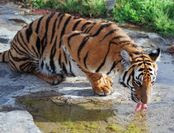.jpg)
AnNamiru_Riadhah
.jpg)
AnNamiru_Riadhah
.jpg)
AnNimru ma_A waladuha
Namir fil_Ghabi (sebut Robi...
Namir

AdDubbu_Beruang di hutan

Amu Syahidan Wa La Tuba lil_A'duwwi

AsSyahid

Namir

Tangkas
najwa dan irah

sungai

najwa

najwa

Kaabatul musyarrafah

unta

Jabal Rahmah

masjid nabawi

masjid quba

dr.eg

najwa dan hadhirah

along[macho]
![along[macho]](https://blogger.googleusercontent.com/img/b/R29vZ2xl/AVvXsEjuMi7D33CmR0_KXrCW2XigfLcUuQurcvtqOS139ncCwEzCyB-jUopk7QK7anADIenJEm2S0N6gAY1ubnACYXewgiAsI3rBjnLTawM39alLL-rEopOoVqn0w5WpLhPJH3hrXNtchEhgtyaI/s240/P7150023.JPG)
harissa dan hadhirah

adik beradik
Tongkat Ali

Tongkat Ali
herba kacip Fatimah
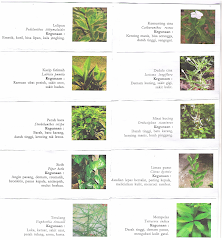
herba Kacip Fatimah
hempedu beruang
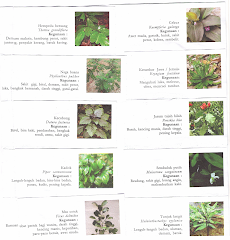
hempedu beruang
hempedu bumi

hempedu bumi
herba misai kucing

herba misai kucing
herba tongkat Ali
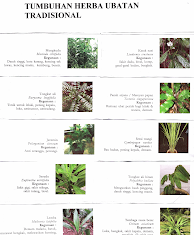.png)
Tongkat Ali
Ulama'

Ulama'
kapal terbang milik kerajaan negara ini yang dipakai pemimpin negara

kapal terbang
Adakah Insan ini Syahid

Syahid
Tok Ayah Haji Ismail

Saifuddin bersama Zakaria

Dinner....
Sukacita Kedatangan Tetamu
Pengikut
Kalimah Yang Baik

Ubi Jaga

Ubi Jaga
Arkib Blog
Burung Lang Rajawali

Chinese Sparrowhawk
Kelicap Mayang Kelapa
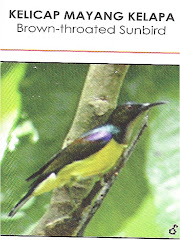
Brown-Throated Sunbird
Kopiah

Pokok Damar Minyak

Kacip Fatimah
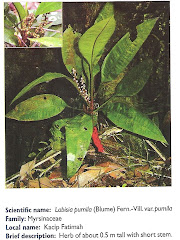
Mengkudu Akar
